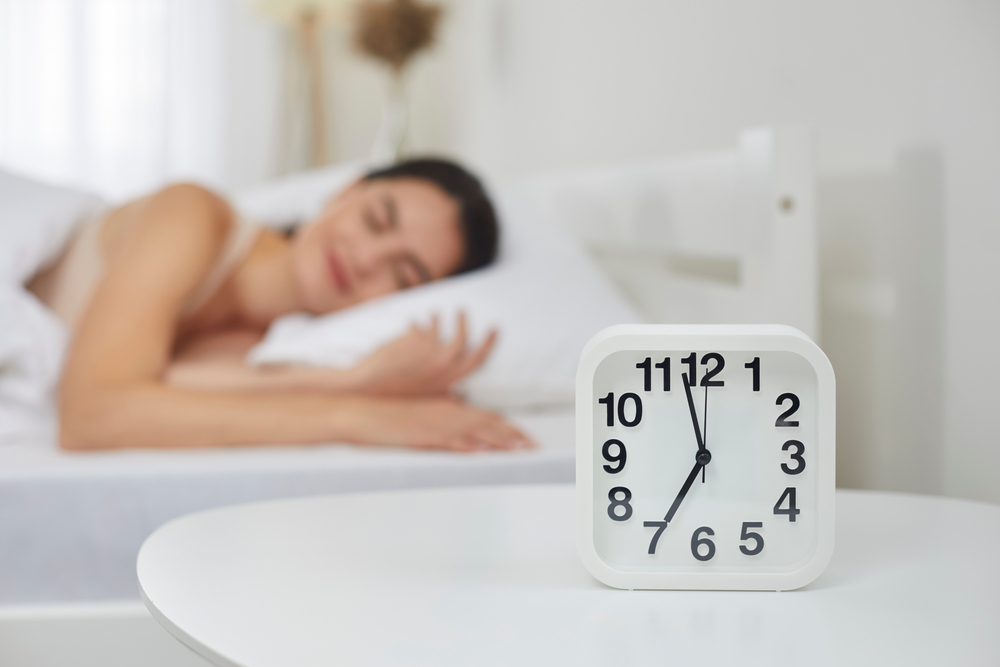Sleep is one of the most crucial pillars of our health, yet it is often neglected. Good sleep is essential not only for physical recovery but also for mental clarity and emotional balance. In this article, we will take an in-depth look at the importance of sleep and provide valuable tips on how you can improve your sleep quality.
Why Is Sleep So Important?
Sleep is essential for the regeneration of the body and mind. During sleep, our bodies repair and renew cells, strengthen the immune system, and process experiences and information. Chronic sleep deprivation can lead to serious health problems such as heart disease, diabetes, and depression.

The Phases of Sleep
Sleep consists of different phases that repeat in a cycle. These phases include light sleep, deep sleep, and REM sleep. Each phase plays a specific role in recovery and memory processing. Light sleep serves as a transition phase, deep sleep is particularly important for physical recovery and tissue repair, while REM sleep is crucial for information processing, emotional regulation, and dreaming. Understanding these phases highlights the importance of achieving a full sleep cycle for optimal health and well-being.
Effects of Sleep Deprivation
Lack of sleep can lead to a variety of health issues, including reduced cognitive abilities, weight gain, and a weakened immune system. Long-term sleep deprivation increases the risk of chronic diseases and can shorten life expectancy. It also affects emotional stability and can lead to mood swings and depression.
How Much Sleep Do We Need?
The optimal amount of sleep varies depending on age and individual needs. Adults should ideally get 7-9 hours of sleep per night. Children and teenagers need more sleep to support their growth and development. It is important to listen to your body’s signals and ensure you are getting enough sleep.

Optimizing the Sleep Environment
A quiet and comfortable sleep environment is crucial for good sleep. Ensure your bedroom is dark, quiet, and cool. Invest in a comfortable mattress and high-quality bedding. Reduce distractions such as electronic devices and create a relaxing atmosphere.
The Role of Nutrition in Sleep
What and when we eat can significantly affect our sleep. Avoid heavy meals and caffeine in the hours leading up to bedtime to prevent discomfort and insomnia. Certain nutrients, like magnesium in leafy greens and melatonin in cherries, can promote better sleep. A balanced diet rich in fruits, vegetables, lean proteins, and whole grains supports a healthy sleep-wake cycle. Additionally, staying hydrated but avoiding excessive fluids before bed helps maintain uninterrupted sleep.
Maintaining Regular Sleep Schedules
A regular sleep-wake schedule helps stabilize the internal clock. Try to go to bed and wake up at the same time every day, even on weekends. This consistency supports a healthy sleep cycle and improves overall sleep quality. Maintaining regular sleep hours helps regulate your body’s natural rhythms, making it easier to fall asleep and wake up feeling refreshed. Consistent sleep patterns also enhance cognitive function, mood, and overall health.

Relaxation Techniques Before Bed
Relaxation techniques such as meditation, breathing exercises, or gentle yoga can help calm the mind and prepare the body for sleep. Establish an evening routine that helps you unwind and enter a relaxed state. This routine might include activities like reading, taking a warm bath, or listening to soothing music. Creating a calming pre-sleep ritual signals to your body that it’s time to relax, making it easier to fall asleep and enjoy a restful night.
Dealing with Sleep Disorders
If you regularly have trouble falling or staying asleep, consult a doctor. Sleep disorders can have many causes, including stress, anxiety, or underlying health issues. Professional advice can help identify the root cause and find appropriate treatments. Addressing sleep disorders promptly can improve your overall health and quality of life. A healthcare provider might suggest lifestyle changes, therapies, or medications to help you achieve better sleep. Don’t hesitate to seek help if sleep problems persist, as they can significantly impact your well-being.
The Impact of Screen Time on Sleep
Using electronic devices before bed can negatively affect sleep. The blue light from screens inhibits the production of melatonin, a hormone that regulates the sleep-wake cycle. To improve sleep quality, reduce screen time in the hours before bedtime and consider using blue light filters if necessary. Additionally, engaging in relaxing activities, such as reading a book or practicing mindfulness, can help prepare your mind and body for sleep, promoting a more restful night.

The Importance of Daylight
Adequate daylight helps regulate the natural sleep-wake cycle. Spend as much time outdoors as possible and ensure sufficient natural light in your home. Exposure to daylight helps regulate melatonin production, promoting healthy sleep patterns. Natural light during the day can enhance alertness and mood, while also making it easier to fall asleep at night. Incorporate outdoor activities into your routine and keep your living spaces well-lit to support your body’s natural rhythms and improve sleep quality.
Conclusion
Good sleep is the key to a healthy and balanced life. By following the tips presented here, you can significantly improve your sleep quality and thereby enhance your overall well-being. Remember, sleep is not a luxury but a necessity to maintain your physical and mental health. Pay attention to your sleep habits and make sleep a priority in your life.

